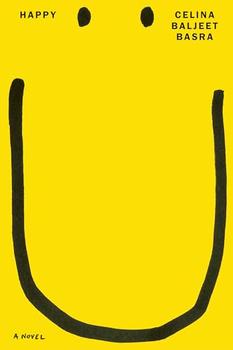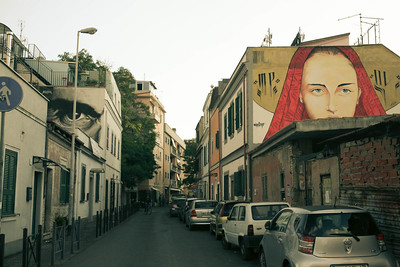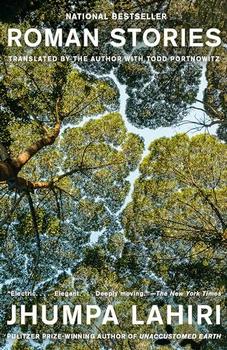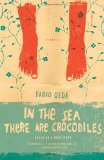Summary | Excerpt | Reading Guide | Reviews | Beyond the book | Read-Alikes | Genres & Themes | Author Bio

A Novel
by Celina Baljeet BasraFor fans of Vikas Swarup and Charles Yu, the story of a starry-eyed cinephile who leaves his rural village in Punjab to pursue his dreams - a formally daring debut novel set against the global migration crisis.
In a rural village of Punjab, India, a moony young man crouches over his phone in a rapeseed field near his family's cabbage farm. His name is Happy Singh Soni, and he's watching YouTube clips of his favorite film, Bande à Part by Jean-Luc Godard. In fact, Happy is often compared to a young Sami Frey by the imaginary journalists that keep him company while he uses the outhouse. Pooing, as he says, "en plein air." When he's not sleeping among the cabbages and eating his mother's sugary rotis, Happy dreams of becoming an actor, one who plays the melancholy roles—sad, pretty boys, rare in Indian cinema. There are macho leads and funny boys en masse, but if you're looking for depth and vulnerability, you must make your own heroes.
Then comes Wonderland, an eccentric facsimile of Disneyland that steadily buys up the local farms, rebranding the community's traditional way of life. Happy works a dead-end job at the amusement park, biding his time and saving money for a clandestine journey to Europe, where he'll finally land a breakout role. Little does he know that his immigration is being coordinated by a transnational crime syndicate. After a nightmarish passage to Italy, Happy still manages to find relief in food and fantasy, even as he is forced into ever-worsening work conditions over a debt he allegedly accrued in transit. But his daydreams grow increasingly at odds with his bleak reality, one shared by so many migrant workers disenfranchised by the systems that depend on their labor.
At turns funny and poetic, sunny and tragic, Happy is a daring feat of postmodern literature, a polyphonic novel about the urgent, lovely coping mechanisms created by generations of diasporic people. Set against the enmeshed crises of global migration and the politics of labor within the food industry, Celina Baljeet Basra's luminous debut argues for the things that are essential to human survival: food, water, a place to lay one's head, but also pleasure, romance, art, and the inalienable right to a vivid inner life.
Celina Baljeet Basra's debut novel is a postmodernist work, characterized by unreliable narration, a non-linear structure, and grappling with relevant political and social themes of today. Happy is a dreamer who sees the world through rose-colored lenses. So rose-colored that he is fundamentally untrustworthy. Excitable, impatient, charismatic, single-minded, he is "unable to distinguish the important from the unimportant," and others "seriously question whether he has a firm grasp of what is real and what is not" (from his third-grade teacher in response to his essay on "My Future Profession"). He is willing to scrounge for leftover bakery bread, but doesn't explicitly tell us so. He also describes sharing a bed spot with an unknown irregolari who works nights, but focuses on the vivid imaginary persona he has created in his head for this character — Igor from Hungary, who makes a top-notch ragu worthy of international renown...continued
Full Review
(847 words)
This review is available to non-members for a limited time. For full access,
become a member today.
(Reviewed by Pei Chen).
 A radish farm worker in Celina Baljeet Basra's Happy relays a tale of injustice at his previous job: a group of exploited immigrants, an attack, and an uprising. This story is one we might imagine to be derived from a compilation of worker mistreatments, but the specifics are based on a true story of immigrant fruit pickers in Rosarno, in southern Calabria, Italy, where racist attacks by locals in 2010 sparked an uprising of hundreds of workers. One of these workers, Suleiman Diara, left Rosarno and moved to Rome, where he and a business partner founded Barikamà ("resilience" in Bambara), a workers' co-operative. "I had to find a way to stop being exploited while being financially independent," Diara said in an interview with ...
A radish farm worker in Celina Baljeet Basra's Happy relays a tale of injustice at his previous job: a group of exploited immigrants, an attack, and an uprising. This story is one we might imagine to be derived from a compilation of worker mistreatments, but the specifics are based on a true story of immigrant fruit pickers in Rosarno, in southern Calabria, Italy, where racist attacks by locals in 2010 sparked an uprising of hundreds of workers. One of these workers, Suleiman Diara, left Rosarno and moved to Rome, where he and a business partner founded Barikamà ("resilience" in Bambara), a workers' co-operative. "I had to find a way to stop being exploited while being financially independent," Diara said in an interview with ...
This "beyond the book" feature is available to non-members for a limited time. Join today for full access.

If you liked Happy, try these:

by Jhumpa Lahiri
Published 2024
The first short story collection by the Pulitzer Prize–winning author and master of the form since her number one New York Times best seller Unaccustomed Earth • Rome—metropolis and monument, suspended between past and future, multi-faceted and metaphysical—is the protagonist, not the setting, of these nine stories

In the Sea There are Crocodiles
by Fabio Geda
Published 2012
When a ten-year-old boy's village in Afghanistan falls prey to Taliban rule, his mother shepherds the boy across the border into Pakistan but has to leave him there all alone to fend for himself. Thus begins Enaiat's remarkable and often punishing five-year ordeal.